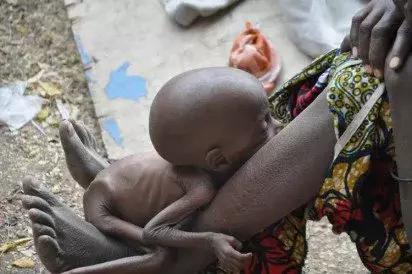Op-Ed.
Tragedy of Nigeria’s poverty scourge

At about the close of the year 2022, a report by Nigeria’s National Bureau for Statistics, working alongside a consortium of global partners, put the figure of Nigerians living in multi-dimensional poverty at a colossal 133m.
Understandably, the Federal Government of Nigeria, which had itself pledged to lift 100m Nigerians out of poverty was alarmed.
Among other things, it put a lot of the blame on the governments at the sub-national tiers, plainly accusing them of frittering away scarce resources on clearly unwholesome projects.
Not taking this, state governments immediately posted rebuttals, saying that the allegations by the federal authorities were unfounded and dodgy and that the fault was elsewhere.
Rivers State Governor, Nyesom Wike, particularly pointed to a vast slew of infrastructure projects that he had embarked upon and delivered, saying that the accusations were blatantly unfair. While not joining issues with any of the parties in the fray, the clear view of this newspaper is that the issue of poverty cannot exclusively be put at the door step of any one government or indeed a tier of government; it is the failure of successive regimes, and indeed, all the tiers of government – federal, states and local government, and what is needed is to find holistic solutions to the scourge.
Within this holistic frame, it was the venerable sage, Dr. Nelson Mandela, who once said that poverty is a human creation; and accordingly, it therefore, requires the deliberate and concerted actions of men and women to resolve it.
Another point that needs addressing has to do with focus and structure.
In this wise, it is important to note that people cannot really be magically lifted out of poverty through hand-out schemes as seems to be the conceptual understanding of many of the drivers of currently operating poverty alleviation schemes. The thing to do, therefore, is to comprehensively empower those in the polity that fall within the poverty bracket so they can come out of the trap.
Again, the propensity of most governments in the country to embark on high budget projects, such as airports, bridges, secretariats and governors’ lodge buildings, etc have very little impact on the real needs of the people and in line with the principles of opportunity cost, and very sadly, does have the counter effect of even perpetuating poverty.
Evidence of the depth of the challenge can be seen in the fact that Nigeria did not meet the United Nations’ Millennium Development Goals, MDGs, which ended in 2010, and is on almost all parameters, already very unlikely to meet the follow-up Social Development Goals, SDGs that replaced the MDGs scheme and, which would be concluded in 2030.
Overall, the country’s leaders have not placed the interest and welfare of Nigerians, as seriously as, they should and in line with the Fundamental Objectives and Directive Principles on the guiding objective of government, as enshrined in the 1999 Constitution of the Federal Republic of Nigeria (as amended). This is chiefly because, more often than not, they are simply not held to account.
Equally, the continuing scourge of rampart corruption is a definite cause of poverty expansion because it creates a scenario, where those that can, take from the public till to enrich themselves at the expense of the majority of the people. There is also the crippling failure of the economic and political structures of government to deliver their mandate, as a result of the continuing emphasis on prebendal politics.
What we are, therefore, confronting is a situation, where an unseemly culture of entitlement has now permeated the length and breadth of our society, such that people are no longer ready and willing to do honest jobs for honest pay. Within this distorted field, gaming the system has very sadly become fair sport. It is that bad.
On the other hand, despite what could be said to be the colossal investments of government in the arena of social intervention, the field reality is that most of the poverty alleviation programmes embarked upon this far, such as the the Social Investment Programme, SIP, TraderMonie, and Conditional Cash Transfers, CCT, have been largely ineffective, because they are short term in nature, politically driven, and do not address the root cause of the challenge.
The deeper alternative path to take now is for the institutions of governance to be comprehensively decentralized to allow for increased and improved practical participation and oversight by the people. In this way, greater focus would be put on addressing the social needs of people, such as water, health, education, food etc, and in the process take away a lot of the parasites that eat away at their real income so they can have retained capital that can then be used to invest in meaningful economic activities of their choice, inclination and disposition.
This, for us, would be the beginning of a real, effective and most meaningful poverty eradication campaign.





